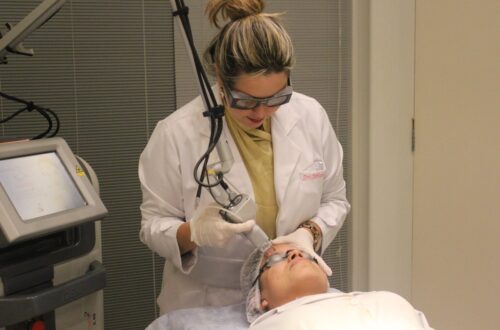
How Artificial Intelligence is Being Used to Clone Voices – A Deep Dive into the Technology and How to Identify Scams
Artificial Intelligence (AI) is an exciting field that’s continually evolving and bringing about transformations in many sectors. One of its fascinating and potentially concerning applications is its ability to clone voices. This technology is being increasingly used in scams, making it crucial to understand how it works and how to identify these fraudulent activities.
Table of Contents
1. Understanding Voice Cloning(#Understanding-Voice-Cloning)
2. The Role of AI in Voice Cloning(#The-Role-of-AI-in-Voice-Cloning)
3. Applications of Voice Cloning(#Applications-of-Voice-Cloning)
4. The Dark Side of Voice Cloning(#The-Dark-Side-of-Voice-Cloning)
5. How Scams Use Voice Cloning(#How-Scams-Use-Voice-Cloning)
6. Identifying Voice Cloning Scams(#Identifying-Voice-Cloning-Scams)
7. What to Do if You’re a Victim(#What-to-Do-if-You’re-a-Victim)
8. Preventing Voice Cloning Scams(#Preventing-Voice-Cloning-Scams)
9. The Future of Voice Cloning(#The-Future-of-Voice-Cloning)
10. Conclusion(#Conclusion)
Understanding Voice Cloning
Voice cloning refers to the process of creating a near-perfect copy of a person’s voice using technology. It involves capturing the unique patterns, tones, and rhythms of a person’s speech and reproducing them in a way that sounds incredibly similar to the original voice.
“`python
# Pseudo code for voice cloning
def clonevoice(originalvoice):
# Capture unique attributes of the voice
attributes = captureattributes(originalvoice)
# Reproduce the voice with the captured attributes
clonedvoice = reproducevoice(attributes)
return cloned_voice
“`
The Role of AI in Voice Cloning
AI has a significant role in voice cloning. It uses machine learning algorithms to analyze a person’s voice and learn the specific characteristics that make it unique. The AI can then generate a synthetic voice that mirrors these unique traits.
AI Voice Cloning Process. Source: imgur.com
Applications of Voice Cloning
Voice cloning technology has various applications. For instance, it can be used in:
1. Entertainment industry: Voice actors can have their voices cloned for use in animation and video games.
2. Healthcare sector: Patients who have lost their voices due to conditions like throat cancer can regain their ability to speak with their own voice.
3. Personal assistants: AI-driven personal assistants like Siri and Alexa could be customized to speak in the user’s voice.
The Dark Side of Voice Cloning
Though voice cloning has numerous positive applications, it also has a dark side. It can be used for malicious purposes like cybercrime, identity theft, and scams. Fraudsters use cloned voices to trick people into believing they are speaking to someone they know and trust, leading them to reveal confidential information or transfer money.
> ‘The misuse of voice cloning technology is a growing concern in the digital age. It’s crucial to stay informed and vigilant.’ – Cybersecurity Expert
How Scams Use Voice Cloning
Scammers use voice cloning in a variety of ways. Some examples include:
– Phishing calls: Scammers impersonate bank representatives or government officials to extract sensitive information from victims.
– CEO fraud: Fraudsters clone the voice of a company’s CEO or another high-ranking executive to trick employees into transferring funds.
Identifying Voice Cloning Scams
Identifying voice cloning scams can be challenging due to the sophistication of the technology. However, there are some signs to look out for:
– Urgency: Scammers often create a sense of urgency to pressure the victim into making a hasty decision.
– Request for personal information: Legitimate organizations usually won’t ask for sensitive information over the phone.
– Poor call quality: Synthetic voices may have slight distortions or unusual speech patterns.
What to Do if You’re a Victim
If you fall victim to a voice cloning scam:
1. Contact your bank or credit card company immediately.
2. Report the scam to your local law enforcement agency.
3. Notify your contacts to prevent them from becoming victims too.
Preventing Voice Cloning Scams
Preventing voice cloning scams involves being vigilant and taking precautionary measures:
– Be wary of calls from unknown numbers.
– Verify the caller’s identity through different means.
– Never share sensitive information over the phone.
The Future of Voice Cloning
As AI continues to evolve, so will voice cloning technology. While this brings exciting possibilities, it also presents new challenges in terms of privacy and security. It’s crucial that regulations keep pace with technological advances to protect individuals from potential misuse.
Conclusion
Voice cloning is a remarkable application of AI, but its potential misuse in scams is a growing concern. Awareness and vigilance are essential in protecting oneself from falling victim to these sophisticated frauds. As technology advances, society must strive to harness its benefits while mitigating its risks.
https://www.metroworldnews.com.br/ciencia-e-tecnologia/2023/08/27/inteligencia-artificial-e-usada-para-clonar-vozes-em-chamadas-para-golpes-veja-como-as-identificar/





